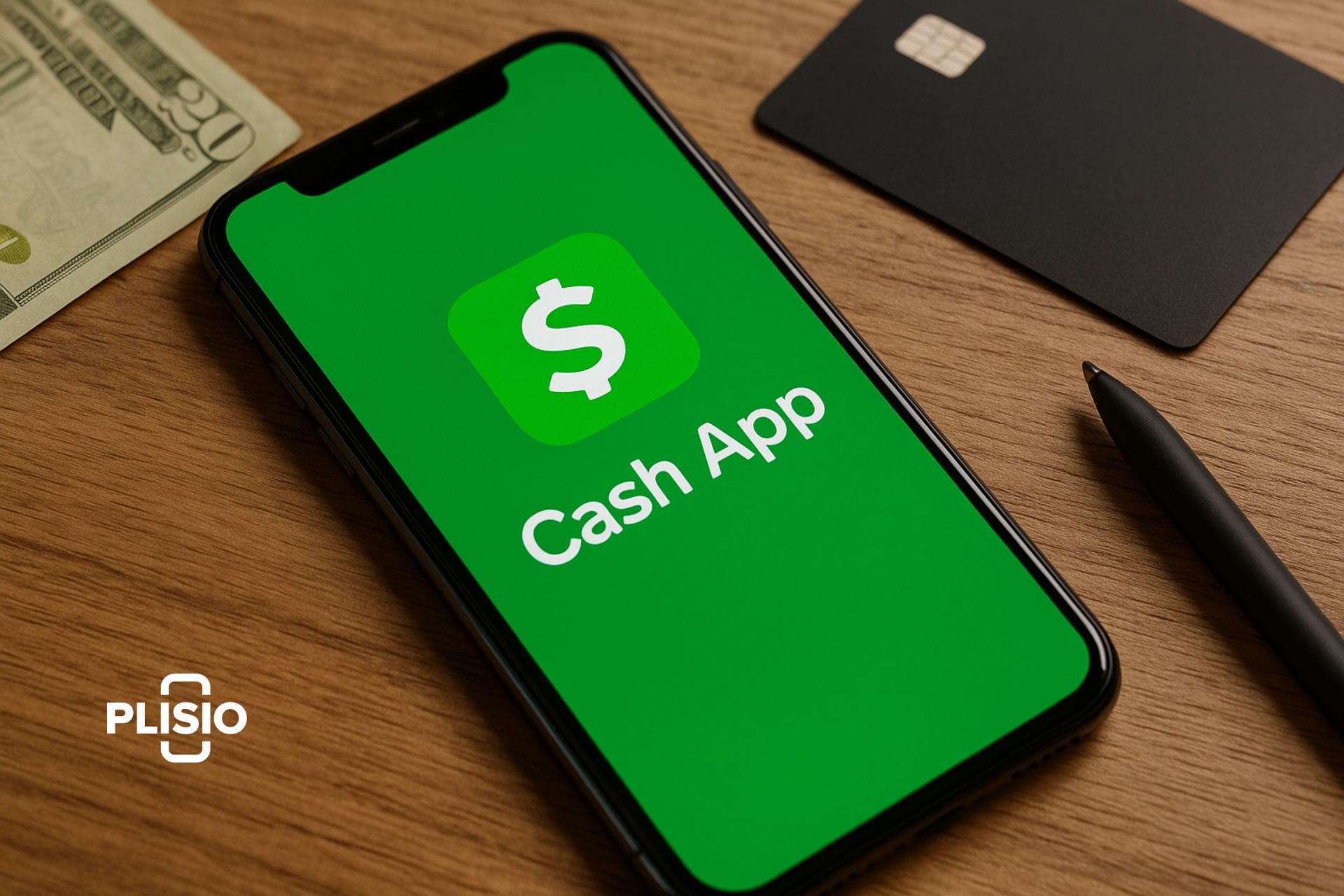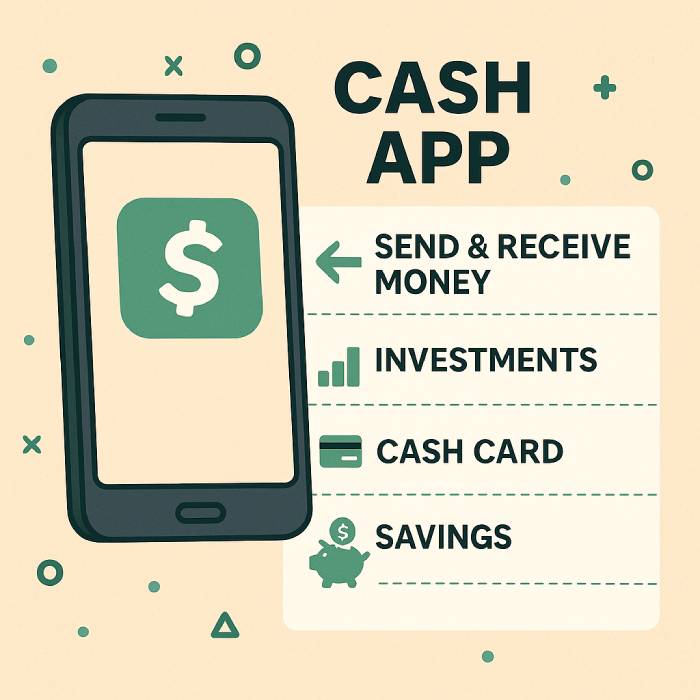Cash App: The Complete 2026 Guide

In an increasingly cashless world, mobile payment apps are redefining how we send and receive money. One standout platform in this space is Cash App—a peer-to-peer (P2P) money transfer service that simplifies personal finance management for over 51 million users monthly in 2025.
Cash App isn’t just a payment app. It combines tools for transfers, savings, investing, Bitcoin trading, and even tax filing, making it one of the most versatile financial apps available today.
What Is Cash App?
Cash App is a mobile-based payment service created by Block, Inc. It allows users to send money, request payments, and manage their finances from their smartphone. Whether you’re splitting a restaurant bill, sending money to friends, or shopping online with your Cash App card, the platform is designed to be easy to use and secure.
Key features include:
- Send and receive money instantly
- Link a bank account or debit card to fund your Cash App balance
- Invest in stocks and buy Bitcoin
- File taxes for free with Cash App Taxes
- Create a savings account with no monthly fees
How Cash App Works
To use Cash App, you need to download the app and set up your account. Once registered, you can link a bank account, debit card, or credit card. This linked account becomes your funding source for transactions.
Cash App allows users to send and receive money by entering a phone number, email, or $Cashtag. All payments generate a notification, and security is enhanced by options like fingerprint or face ID verification.

How to Add Money to Cash App
Adding money to your Cash App account is simple:
- Open the app and log in.
- Tap the Money tab on the home screen.
- Select Add Cash and enter an amount.
- Confirm the transfer using your PIN or biometric ID.
Funds in your Cash App will then be available for instant transactions, whether you're paying someone, investing, or shopping.
How to Receive and Send Money with Cash App
Sending money takes just a few steps:
- Tap Pay and enter the amount.
- Input the recipient’s email, phone number, or $Cashtag.
- Add a note if needed and tap Pay to complete.
To receive money:
- Share your $Cashtag or receive a payment request from others.
- You’ll receive a notification once the funds arrive.
You can hold money in Cash App or transfer it to your linked bank account. Deposits typically take one to three business days, though instant deposit is available for a small fee.
How to Deposit and Withdraw Money
Deposit Options:
- Direct Deposit: Set up your paycheck to go directly into your Cash App account.
- Retail Locations: Load money at participating stores (ATM deposits are not supported).
Withdraw Options:
- Cash Out: Transfer funds from Cash App to a linked bank account.
- Use a Cash App Card: Withdraw from ATMs or spend directly from your balance.
In 2025, Cash App debit card holders can access free ATM withdrawals after qualifying for direct deposits totaling $300 or more per month.
Cash App Debit Card Overview
Optional Debit Card Linked to Your Cash App: The Cash App Debit Card is a no-cost, optional card that allows users to spend money directly from their Cash App balance. Issued by Sutton Bank and linked to your Cash App account, this card operates independently from your personal bank account or other debit cards.
ATM Withdrawals with Direct Deposits: If you enable direct deposits into your Cash App account, you can make free ATM withdrawals. Without direct deposits, using your Cash App debit card at ATMs incurs a $2.50 fee, plus any fees the ATM operator may charge. Note that you cannot load money onto your Cash App via an ATM—cash deposits must be made at retail partners.
Cash App Offers and Boosts: Cash App users who activate the Cash App Card can access exclusive discounts at selected merchants. You can only activate one offer at a time but are free to switch between them to maximize savings.
Cash App Fees and Charges
Basic Service Fees: Cash App does not charge users for sending or receiving money (unless using credit cards), nor does it apply monthly or inactivity fees. This positions Cash App as one of the more affordable money transfer apps available.
Credit Card Transaction Fee: When you send money using a linked credit card, Cash App charges a 3% transaction fee. This is in line with services like Venmo. You can avoid this fee by using your linked bank account or the funds in your Cash App balance.
Instant Transfer Fee: For those who prefer fast access to funds, instant transfers to a linked account incur a fee ranging from 0.50% to 1.75% of the transaction. Alternatively, a free standard transfer takes one to three business days.
As of early 2025, over 51 million people actively use Cash App each month, according to data from Block, Inc. This puts it among the top peer-to-peer (P2P) payment apps in the U.S., alongside Venmo and PayPal.
Spending and Withdrawal Limits
Cash App Card Limits:
- Per transaction and per day: $7,000
- Weekly: $10,000
- Monthly: $25,000
ATM and Cash Back Withdrawal Limits:
- Per transaction: $1,000
- Daily: $1,000
- Weekly: $1,000
Cash App Age Policy:
- Individuals 13 years and older can use Cash App.
- Teen users must have a parent or guardian sponsor their account to access most features.
These limitations help ensure secure and responsible use of funds in your Cash App account.
Highlighted Features of Cash App
Savings Account Integration: The new Cash App Savings feature allows users to earn interest without monthly fees. You can open a savings account with as little as $1 or activate it using a roundup feature. Users who receive $300 or more in direct deposits monthly and hold a Cash App Card may qualify for a 4.50% APY; otherwise, the rate drops to 1.50%.
Referral Rewards: Cash App offers bonuses for referring friends. Once your friend sets up their account and begins using Cash App, both of you receive a cash bonus.
Stock Investing: The app allows users to invest in stocks, even in small amounts. If there are insufficient funds in your Cash App balance, the remaining amount is withdrawn from your linked bank account.
Cash App Taxes: This feature allows users to file taxes for free. If you choose to receive your refund through Cash App, you may get it up to five days faster than through traditional bank deposits.
Bitcoin Transactions: Cash App allows users to buy and sell Bitcoin. Fees may apply depending on the speed of transfer or withdrawal, and they are clearly disclosed before completing any Bitcoin transaction.
In 2025, Cash App Taxes remains one of the few free tax-filing tools with no hidden charges. Last year, over 6 million users reportedly filed their taxes through the app.
Limitations and Considerations
Insurance of Funds: Money on Cash App is not automatically FDIC-insured. To qualify for insurance, users must either have a Cash App debit card or a sponsored account.
Fees and Charges: Cash App charges 3% for sending payments via credit cards and a small fee for instant deposits. Always check the fee breakdown in the app for transparency.
Customer Support Availability: Reaching Cash App’s customer support is often limited to in-app communication, which may not be ideal for complex or urgent issues.
Transaction Restrictions: Cash App imposes limits on how much money users can send, receive, or withdraw. While this promotes security, it may be a drawback for users managing large sums.
Scam Prevention Tips: As with all P2P platforms, precautions must be taken. Always verify recipients, and be cautious with unsolicited $Cashtag requests. Only transfer money to people you know and trust.
According to a 2025 Consumer Financial Protection Bureau (CFPB) report, fraud complaints involving P2P apps rose by 12% compared to 2024, making it more important than ever to use extra caution and security features.
No Joint Accounts: Cash App does not currently support shared or joint accounts, which can be inconvenient for families or couples.
No Interest on Balance: Funds stored in your Cash App balance do not accrue interest, unlike savings at some traditional financial institutions.
Limited International Support: Cash App services are restricted primarily to the U.S. and the U.K., which limits its function as a global payment app.
Cash Deposits: You cannot deposit cash into your Cash App balance via ATMs. Depositing money is only possible through approved retail locations.
Privacy Considerations: Be careful when sharing your $Cashtag or other account information. Adjust notification and security settings in the app to avoid unwanted requests and keep your account safe.
Understanding how Cash App works, including its features, limits, and fees, helps users make informed choices. With built-in options like stock investing, Bitcoin trading, tax filing, and a savings account, Cash App is more than just a payment service—it’s a comprehensive financial tool built for the smartphone age.
Tip: With more than $250 billion in total transaction volume expected in 2025, Cash App continues to gain ground as one of the most trusted and easy-to-use money transfer services for individuals and small businesses alike.
For best results, follow basic tips for using Cash App securely: enable biometric verification (such as fingerprint or face ID), set alerts for every transaction, and link your debit card or bank account to keep your funds accessible. Whether you're splitting bills, sending money to friends, or managing savings, Cash App allows users to take control of their finances in an easy-to-use environment.

